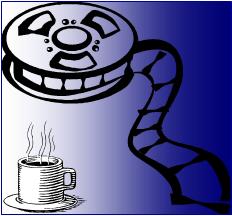

|
 |
Croupier ___________ 8.5/10
|
Please go to the new Coffee Coaster site implemented more gracefully in Wordpress. This page: http://brianrwright.com/CoffeeCoasterBlog/?p=7443 |
Clive Owen ... Jack Manfred
Nick Reding ... Giles Cremorne
Nicholas Ball ... Jack Snr.
Alexander Morton ... David Reynolds
Gina McKee ... Marion Nell
David Hamilton ... Casino Supervisor
Alex Kingston ... Jani de Villiers
"The world breaks everyone, and afterwards many are strong at the broken places. But those that will not break, it kills—it kills the very good, and the very gentle, and the very brave, impartially. If you are none of these, you can be sure it will kill you, too, but there will be no special hurry."
— Jack Manfred (Clive Owen)
That's my favorite of the quotes from this brooding yet determined character, young, slick Jack Manfred. It comes toward the end of the movie. Here's another:
Gambling's not about money... Gambling's about not facing reality, ignoring the odds.
Quite a fascinating character, right from the beginning, when we see him talking to a London publisher about a book idea. The publisher is smarmy, the type who sucks up to the in crowd; his advice to Jack is in effect, "Just work your ass off for us every waking moment and eventually success will arrive." The vibes Jack gives off, however, are anything but those of an aspiring, hardworking writer... Jack carries a constant grin of confidence. His appearance is hotshot retro, he dies his hair blond and wears a pork-pie straw hat.
In the next scene Jack types "Balls" into his
modern compact writing computer, then some other words that he plays with as the credits come along. At some point the idea of entering the world of gambling occurs to him and thus, the word "Croupier" materializes on the screen. We can tell from these word games on the typewriter that Jack is a pretty sharp cookie and that he probably does not suffer fools gladly. But it's going to be a long project getting this book off the ground; he knows he has the talent for it, yet he's basically a starving artist living in a flat with his girlfriend who's great, but "a true romantic."
So based on a tip from his father—who's underemployed in a casino in South Africa—Jack becomes a croupier, a gaming table attendant, for a middle-of-the-road establishment in downtown London. It's a good way to pay the rent and make his girlfriend happy. He thinks why not kill two birds with one stone, write his book while he makes a few quid in a profession he disdains. But he's very good at it, and we learn that he may have misspent some youth around the gambling industry back in Africa. The scene where Jack demonstrates his skills in handling chips, cards, and money is pretty impressive; hard to see how that's anyone besides the actor (Owen) displaying such deft efficiency.
All along the way, we get the benefit of Jack's internal narrative, some of it intended for the book he's writing, some of it simply reflection for his own immediate purposes. That's when we begin to see Jack is in the middle of his own morality play, trying to resolve some basic questions of how he wants to live. He has a cynical side, but mitigating that is a strong sense of honesty. He doesn't like cheats! It's simply that he sees the world of gambling—something he never does—as a citadel for losers. He actually gets a rush out of watching people lose, which inevitably happens when one plays at the tables long enough.
Life goes on and his work on the book proceeds. But he's succumbing to the underclass world, not by actually committing any crimes or pilfering, but looking the other way and running into conflicts with the moral code he feels must be imposed by people such as he with complete ruthlessness. He worries about becoming infected, possibly giving in to the gambling addiction. And the viewers wonder, too, whether so dark and cynical a person as Jack will "stay clean" in his soul. Even though he's a cynic, he has a profound fondness for his romantic girl friend, then later for another woman who works at the casino. One has the impression he's adopted a "Catcher in the Rye" philosophy, an older Holden Caulfield in a seedier milieu looking after—even being strongly attracted to— those who live in that environment and struggle to stay clean, stay honest, stay human.
One of the women who frequents his tables has become attracted to him, and there are strict rules against fraternization with "punters" (gamblers), especially sexually. Nonetheless, there's something disarming about this one Jani de Villers (Alex Kingston), and Manfred coolly calculates his moves to protect the indulgence of his passion for women. There's also more to her than meets the eye. Hence the plot thickens and we're drawn into a mystery as well as a character novel. Don't forget, Jack is using all this material for his own literary ends.
We'll leave you with that so as not to give anything away.
A couple of interesting points, though: In the beginning, Jack is strung out financially, and won't be getting paid for his casino work—I guess most UK casinos don't allow tips—until six weeks forward. So he has to sell his old beatup MG, a sentimental favorite that his father bequeathed to him, which I believe Jack only receives 750 £ for. Toward the end of the film, this car shows up again, in the hands of a woman he meets who has no real idea of its worth nor, of course, of its significance to Jack. There are quite a few of these little touches sprinkled throughout the film, and each has meaning for how Jack is working his life out... or how the people he meets in the cheap seats are working out their own lives.
In the title of my review I mention the
feel of The Hustler, the classic movie about another sort of addiction (and alcoholism) with Paul Newman, Jackie Gleason, George C. Scott, and Piper Laurie. Jack Manfred is an analog to the George C. Scott character, constantly facing the harsh reality of his world and evincing a certain strength of character thereby. Croupier is lighter, yet it deals with several of the same problems faced in a world populated by addicts; plus it packs the added interest of a mystery. The performances are terrific, especially Owen's. As in The Hustler, the audience lies in suspense, weighing with the characters what is the right thing to do and hoping they'll figure it all out.
Fascinating tale, well worth the watch, and arguably what started Clive Owen on his road to more acting celebrity across the pond.
###
 |
 |
|||